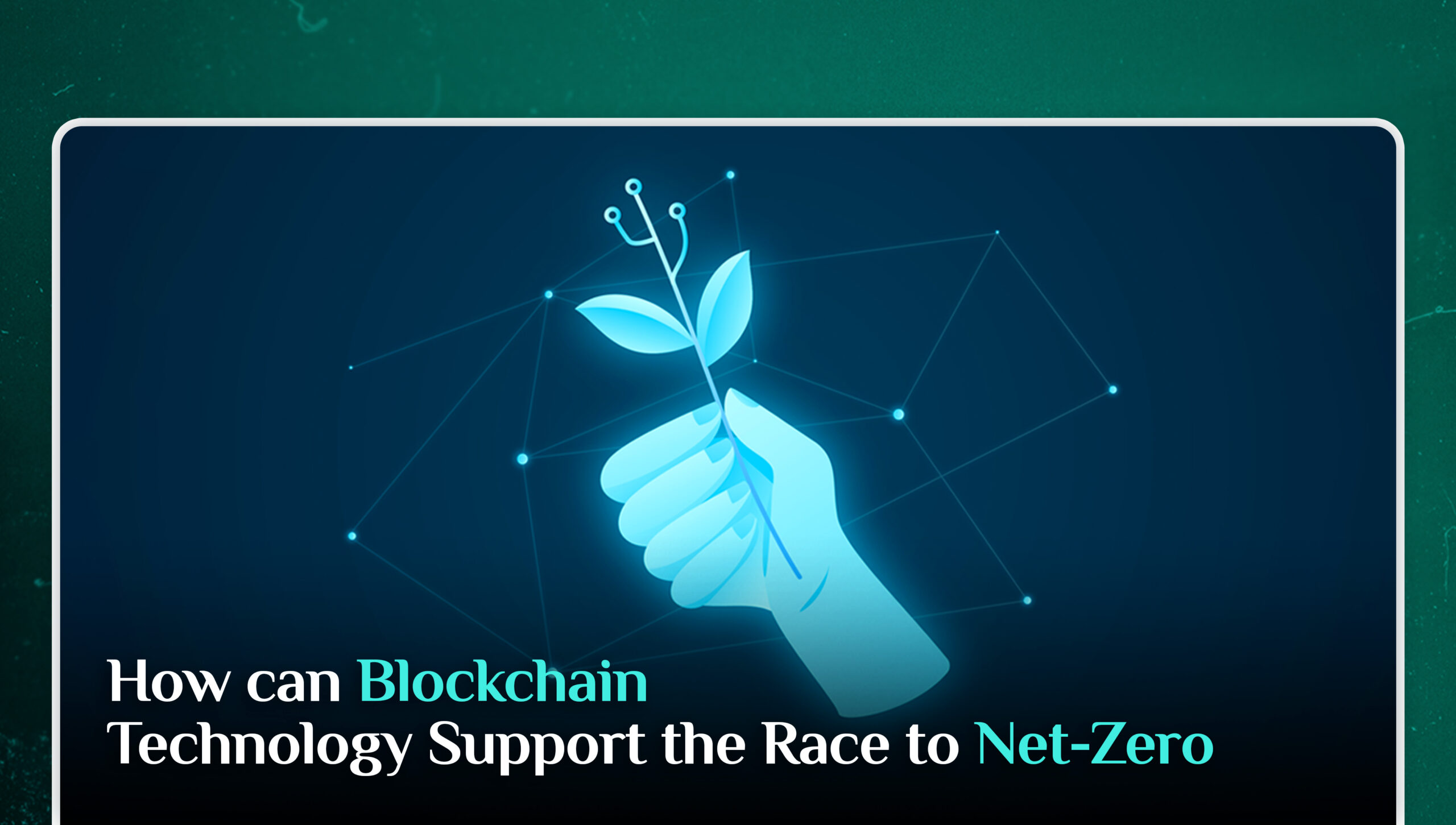As the world suffers from the challenges posed by climate change, the urgency to transition towards a net zero future has become paramount. Developing the capacity to deliver net zero over the next decade may be the most critical transition that humanity has ever needed to make. In this quest for sustainability, emerging technologies such as blockchain have risen to the forefront, offering innovative solutions to combat the environmental crisis. Blockchain, known primarily for its association with cryptocurrencies, holds immense potential to revolutionise industries and drive sustainable practices. Many states that blockchain technology could be an essential and effective tool to improve the energy sector and trace energy intensity. According to experts, blockchain technology can significantly support the race to net-zero emissions by providing transparency, traceability, and efficiency in various sectors. However, we must be as thoughtful about our tools as we are about their potential outputs. Critically, we must consider how technology addresses the net-zero issues that should not exacerbate our climate problems.
Here are some ways blockchain can contribute:
Renewable Energy Trading
Blockchain can facilitate peer-to-peer energy trading by enabling direct transactions between producers and consumers. Smart contracts can automatically execute energy transactions, ensuring transparent and efficient exchange without intermediaries. This empowers individuals and organisations to generate, sell, and purchase renewable energy, fostering the growth of decentralised renewable energy systems. It also promotes the adoption of clean energy sources, facilitates carbon accounting, and encourages sustainable practices. Furthermore, blockchain’s cryptographic features ensure the security and integrity of energy transactions, protecting against fraud and tampering.
Carbon Markets and Offset Verification
Blockchain can create a secure and transparent platform for carbon markets where emission reductions and offsets can be accurately measured, verified, and traded. By tokenising carbon credits on a blockchain, tracking the origin and ownership of these credits becomes easier, ensuring their integrity and preventing double-counting or fraud. Also, it contributes to the overall integrity of carbon markets and the fight against climate change.
Supply Chain Decentralisation
Blockchain technology can enhance supply chain transparency, making it easier to track and verify the environmental impact of products. Each transaction or event in the supply chain can be recorded on the blockchain, forming an auditable trail from the source of raw materials to the final product. This enables stakeholders to verify the authenticity and origin of goods, ensuring compliance with regulations and addressing issues such as counterfeit products and unethical sourcing practices. By recording each stage of a product’s lifecycle on a blockchain, from sourcing raw materials to manufacturing and distribution, stakeholders can assess and reduce carbon footprints more effectively. This can help incentivise sustainable practices and encourage the adoption of eco-friendly alternatives.
Electric Vehicle (EV) Charging Infrastructure
Blockchain can support the development of robust EV charging networks. It can enable secure and automated payment systems for EV charging stations, facilitate dynamic pricing based on electricity demand and supply, and provide real-time data on energy consumption. This infrastructure promotes the adoption of electric vehicles, improves air quality, integrates renewable energy, stimulates economic growth, facilitates grid stabilisation, and enhances energy security. It is a significant component of building a sustainable and efficient transportation system for the future.
Energy Grid Management
Blockchain can enable more efficient management of energy grids by creating a decentralised system for grid balancing and demand response. It allows for exchanging secure and transparent energy data among various grid participants, such as utilities, consumers, and renewable energy generators. This helps optimise energy distribution, minimise waste, and incorporate more renewable energy sources into the grid.
Incentivising Sustainable Behaviors
Blockchain-based platforms can reward individuals and organisations for adopting sustainable practices. For example, using blockchain-based tokens, people can earn rewards for reducing energy consumption, participating in carbon offset programs, or contributing to renewable energy production. These incentives can encourage broader adoption of eco-friendly behaviours and expedite the transition to a low-carbon economy.
Empowering Circular Economy
Transitioning from a linear to a circular economy is crucial for achieving a net zero future. Blockchain can facilitate tracking and resource management throughout their lifecycle, enabling efficient resource allocation and waste reduction. Creating digital representations of physical assets on the blockchain makes tracking and verifying product authenticity, ownership, and condition easier. This transparency encourages collaboration, incentivises recycling, and creates decentralised marketplaces for exchanging used goods.
Conclusion
Blockchain technology holds immense potential to accelerate the global transition to a sustainable future. Overall, its inherent features of transparency, security, and decentralisation make it a promising tool to support the race to net-zero emissions. However, to fully harness the potential of blockchain, collaborative efforts between governments, businesses, and communities are essential. By leveraging blockchain’s capabilities, we can foster sustainable practices, streamline processes, and enable a more efficient and equitable transition to a carbon-neutral future.
This article is written by Radma Nouman. Radma is a Research Analyst at Iqbal Institute of Policy Studies (IIPS).



Leave a Reply